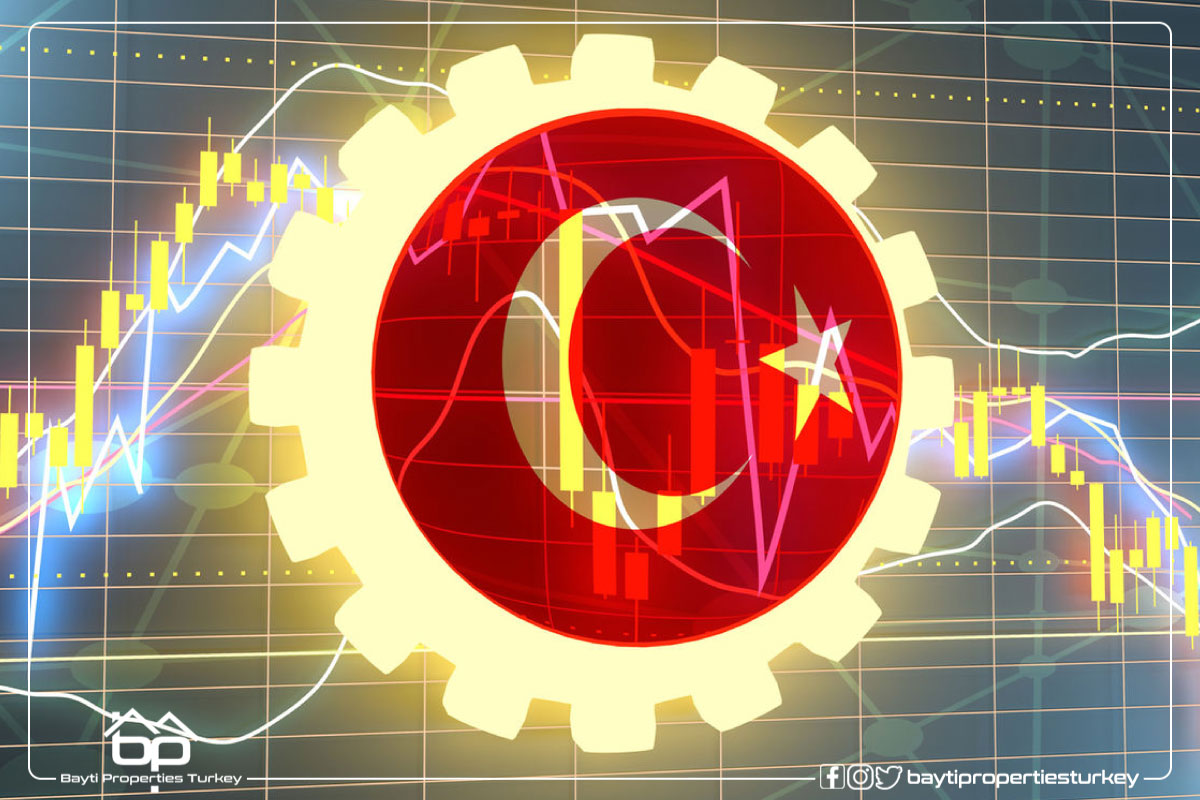The Turkish economy today… Where is it heading?
The Turkish state sets its sights on the goal of reaching the tenth largest economy by 2023, and it is currently the eighteenth largest economy in the world, with a gross domestic product estimated at about $736.716 billion.
The Turkish economy is characterized by its continuous development, as it is a dynamic and reliable economy with the international community and investors, and this comes as a natural result of the efforts of the Turkish government and its strategic plan to develop the Turkish economy.
The Turkish economy in general focuses on foreign trade policy, gives freedom for the circulation of money, and gives facilities for dealing between individuals and companies without hindrances.
What do statistical reports indicate about the Turkish economy for the year 2022
Reports issued by Moody’s International, which dealt with the subject of economic forecasts for the years 2020-2021, indicate that the Turkish economy is in an extremely rapid growth movement, as it is expected, it has risen by three percent, exceeding expectations about a rise of only two percent, and it is also expected to witness an increase of no less than Three percent this year and the year after. The steps of the Turkish state and the policies issued by it played a major role in this improvement and growth.
What are the strengths of the Turkish economy:
The Turkish economy was able to take a position among the countries of the world, and was able to set aside expectations regarding its inability to overcome difficult circumstances, and during the past two decades it has always exceeded expectations and proved that it is capable of dealing with the difficulties experienced by the Turkish lira. In the year two thousand and nineteen, the Turkish budget achieved a surplus of one billion dollars in January, while many economic analysts rejected Turkey’s ability to overcome the ordeal it was going through, and this is confirmed by the figures issued by the Turkish Ministry of Treasury and Finance at the time, and the Turkish state’s revenues were during the month. The first achieved an estimated rise of ninety-seven billion Turkish liras.
The Turkish economy witnessed a growth of 9.2% for the year 2010, and 8.5% for the year 2011, after the global economies, including the Turkish economy, experienced a period of tightness and recession in 2008.
This stability and rapid growth of the Turkish economy has made many investors continue their business in the Turkish state even after the outbreak of the Corona epidemic, because of their belief in the ability of this economy to overcome this global crisis as well.
The movement of buying real estate in Turkey also continued
The future of the Turkish economy
Any economy is based on a set of digital indicators and tangible data, and data and figures for the Turkish economy indicate, according to a study conducted by PricewaterhouseCoopers, one of the largest and most famous professional services companies in the world, that the Turkish economy will occupy the twelfth place among the largest economies in the world by 2030, with an average gross domestic product that may reach $2.996 trillion.
The study also indicates that global economic balances will witness a major change in the coming years, and economic power will become in the hands of emerging economies in the long run.
And if you want to invest in Turkey, do not miss the opportunity to learn about our special offers for buying apartments in Turkey.
A study entitled “Long View: How will the global economic system change by 2050 AD” indicates that the Turkish economy will be among the ten most powerful economies in the world in 2050 AD, and this study is based on a set of indicators and data. The study also expected the Turkish GDP to rise to 5 trillion dollars, by 2050 AD, in addition, by 2030, the GDP will reach about 2.996 trillion dollars, surpassing Italy and South Korea by nearly 500 billion dollars.


